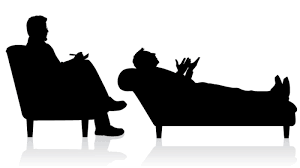Despite having no cure, there are ways to help cope using psychotherapy for tinnitus. The Tinnitus Cognitive Center under Stephen Geller Katz, LCSW-R provides a treatment that helps sufferers turn to normalcy.
What psychotherapy treatments are available for Tinnitus?
There are well-backed therapies to help deal with the symptoms of tinnitus. These therapies aim to help individuals cope with their issues as the audial nerve and cilia are irreparable once they are damaged. Psychotherapy in general aims to produce behavioral changes and overcome problems in desired ways.
The most common psychotherapy treatments for Tinnitus are cognitive behavioral therapy (CB) and cognitive retraining therapy (CRT). Tinnitus retraining therapy is also promising. These therapies focus on the thought processes people use to deal with the condition.
What are the side effects of Tinnitus?
Tinnitus creates a deepening cycle of issues. The phantom noises created in the absence of a frequency results in anxiety and a flight or fight response that in turn triggers anxiety and even depression. Sufferers of the condition experience a wide range of side effects ranging from frustration to lack of sleep and clinical depression.
Studies linked tinnitus to a direct fear of job loss. Individual tend to remain closed about their condition and, in an increasingly technical world, this impacts their work.
The phantom noises appear to have no source. This can result in sound-related phobias in addition to anxiety and depression.
How do psychotherapy treatments work for Tinnitus?
Psychotherapy treatments such as Tinnitus Cognitive Therapy target the thought process related to dealing with tinnitus symptoms. The phantom sounds related to tinnitus are handled by a person’s evaluations, rational and irrational thoughts, and beliefs which in turn triggers a response. This response is often negative as the brain considers the sounds to be dangerous.
Tinnitus Cognitive Therapy targets beliefs, evaluations, and rational or irrational thoughts related to the condition. Intermediate thoughts are linked to core beliefs and produce an automatic reaction. The Korean Journal of Audiology and a wide range of researchers found that focusing on psychotherapy mitigates the effects of tinnitus.
Are there other options help with my Tinnitus symptoms?
 There are drugs available which can reduce the symptoms of tinnitus, but they may not always work and tend to have side effects. Alprazolam is not guaranteed to help cope with your issues but lead to drowsiness and nausea. The drug can be habit-forming as well.
There are drugs available which can reduce the symptoms of tinnitus, but they may not always work and tend to have side effects. Alprazolam is not guaranteed to help cope with your issues but lead to drowsiness and nausea. The drug can be habit-forming as well.
White noise machines and other noise masking devices help with symptoms. They only work as long as they are used and some are not entirely proven and do not provide a way to avoid the cycle of anxiety related to tinnitus.
There is no evidence that alternative medicines work to treat tinnitus. Acupuncture, hypnosis, vitamins, and supplements have no proof of working to reduce symptoms.
Psychotherapy therapies are proven to work, produce long-term results, and create ways to avoid negative thought processes that worsen symptoms. These solutions generate strategies that work.
What is Cognitive Retraining Therapy?
Tinnitus related Cognitive Retraining Therapy is psychotherapy that aims to redirect or rescript negative thoughts to redefine how you deal with tinnitus. This helps to reduce anxiety and stop the cycle that can lead to clinical depression.
The Tinnitus Cognitive Center offers Cognitive Retraining therapy. Schedule an appointment today if you are interested in learning about the use of psychotherapy for tinnitus or our services.
——————-
References
Jin, Hyung Jin and Park, Moo Kyun. Cognitive Behavioral Therapy for Tinnitus: Evidence and Efficacy. (2013, 13 December). Retrieved from https://www.ncbi.nlm.nih.gov/pmc/articles/PMC3936550/
Riedle, David et al. The influence of tinnitus acceptance on the quality of life and psychological distress in patients with chronic tinnitus. (2015, 17 October). Retrieved from https://www.ncbi.nlm.nih.gov/pmc/articles/PMC4900501/
